Cannabis Withdrawal Syndrome: Is It Real?
Still dazed and confused about what may happen to your body after withdrawal? Read on to know the truth about the mystery of Cannabis Withdrawal Syndrome.
Cannabis is one of the oldest plants cultivated by humans. Over the decades, it has been used for multiple purposes such as food, fiber, fuel, and medicine—the first reported recreational use of Cannabis wan in the Jazz era of the 1920s. The drug became popular again in the late 1960s, since then, the use of the drug has spread globally. It is the most widely used illicit drug in the world, according to the UNODC (United Nations Office of Drugs and Crime), which publishes the world drug report that approximately 4% of the world’s population have ever tried cannabis which equates to about 160-170 million people.
Benefits of Cannabis and its Uses
Current data indicate that cannabis works by interacting with a complex system in the body called the endocannabinoid system, or the ECS. Cannabinoids are active compounds found in Cannabis, which have effects on the body. Endocannabinoids are cannabinoids that our bodies naturally produce. Although we don’t have adequate research on ECS, scientists theorize that the body produces substances that stimulate its cannabinoids receptors, which are located in the brain, muscles, fat and digestive tract.
The ECS helps our bodies regulate pain, mood, appetite, motility in the gut, memory, emotions, stress response, immune function, and more. When a person ingests the plant-based cannabinoids in cannabis, such as THC (Tetrahydrocannabinol) and CBD (Cannabidiol), which are similar molecular shapes to endocannabinoids, they fit into the same receptors and trigger reactions that result in either very high or very low levels of specific neurotransmitters, which the cells of the nervous system, as well as the other systems in the body, use to communicate with each other.
Conditions that might be improved by cannabis include:
- Inflammatory bowel disease;
- Multiple sclerosis;
- Neuropathic pain;
- Chemotherapy-related nausea and vomiting;
- Pediatric seizure disorders, and a wide variety of other illnesses
Patients who have tried numerous medications without adequate symptom relief are hopeful that Cannabis will work for them. While many patients claim that it reduces their gastrointestinal symptoms, there is little clinical research to date. Part of this is related to the illegal state of cannabis and past stigmatization, so researchers in many countries face legal barriers studying its medical effects on humans.
While some may perceive Cannabis as a “medicine” to such illnesses—it doesn’t completely equate that it is safe or a benign drug.
What is Cannabis Withdrawal Syndrome?
Like any other addictive substance, heavy or prolonged cannabis use can increase a person’s risk of withdrawal when stopping. Cannabis Withdrawal Syndrome—is a physical reaction of the body after you have stopped consuming Cannabis. Cannabis Withdrawal Syndrome typically begins within 24 hours of last cannabis intake and usually peaks one to four days later. Depending on every person, every withdrawal is different. Whether you use it daily or often, everyone will experience different symptoms after you stop partaking it.
Cannabis Withdrawal Syndrome Symptoms
The most commonly reported symptoms of Cannabis Withdrawal Syndrome are sleep disturbances, including insomnia, night sweats, strange dreams, and nightmares. Other common signs and symptoms include irritability, anger, anxiety, depression, and reduced appetite.
Physical Withdrawals
For physical withdrawals, it usually lasts not more than a month. It is merely a short-term reaction of the body. Yet, again, every person is different. Everyone will experience various kinds of symptoms, depending on how much intake they consume.
Here are some of what common symptoms people may experience during a withdrawal:
- Night sweats. It is the most common symptom of Cannabis Withdrawal Syndrome. It happens during sleep—wherein you sweat a lot more than average because of the heat your body is producing.
- Headache. Like how you quit anything, nicotine, or caffeine, headache is a common symptom.
- Loss of appetite. Study shows that Cannabis Withdrawal Syndrome will help you lose weight as it decreases your appetite.
- Fatigue. You feel tired for no reason as you don’t have that much energy.
Mental Withdrawals
Some people appear to be more vulnerable to the mental health effects of Cannabis than others. Particularly with younger people and those with a family history of mental health problems. The earlier the person begins using Cannabis, the more likely they are to experience mental health problems such as schizophrenia, anxiety and depression, impaired cognition, poor learning outcomes, and harms relating to memory and recall.
Prevention and Treatments
Cannabis dependence is largely focused on reducing usage—often through a combination of treatment and medication. One medication that helps with the symptoms of Cannabis Withdrawal Syndrome is an anti-anxiety medication called Buspirone. As yet, there are no effective/proven pharmacological treatments to help with Cannabis Withdrawal Syndrome.
Although studies are underway, there are several psychosocial treatment options available to help cannabis dependent people cut down or quit. Research studies have shown that even a single session with a counselor can assist those dependent on cannabis to reduce their level of use and improve well-being. Most behavioral treatment involves individualized psychotherapy or group programs. One specific technique is motivational counseling, a goal-oriented counseling style that helps individuals explore and resolve their ambivalence about a behavior.
The intensity of treatment depends on individual circumstances. Some people respond to general education and information about managing craving and high-risk situations for relapse. In some circumstances, treatment may include inpatient management for cannabis, withdrawal, and rehabilitation.
Conclusion
As a quick recap, the THC in cannabis mimics naturally-occurring endocannabinoid neurotransmitters and creates positive reinforcement of usage through feelings of euphoria and negative reinforcement of use through withdrawal symptoms when usage is stopped, referred as Cannabis Withdrawal Syndrome. In rare cases, long-term use can lead to dependence, which is the reliance on the cannabis/THC to function normally. The most effective treatment involves behavioral therapy, which consists of a lot of support from family and friends.
References:
https://www.osmosis.org/learn/Cannabis_dependence
https://www.sciencedirect.com/science/article/abs/pii/S0376871618307142https://www.addictioncenter.com/drugs/marijuana/withdrawal-detox
https://doi.org/10.1089/can.2016.0034
https://www.osmosis.org/learn/Cannabis_dependence
https://images.app.goo.gl/xqyWLtFA3QeavuX86

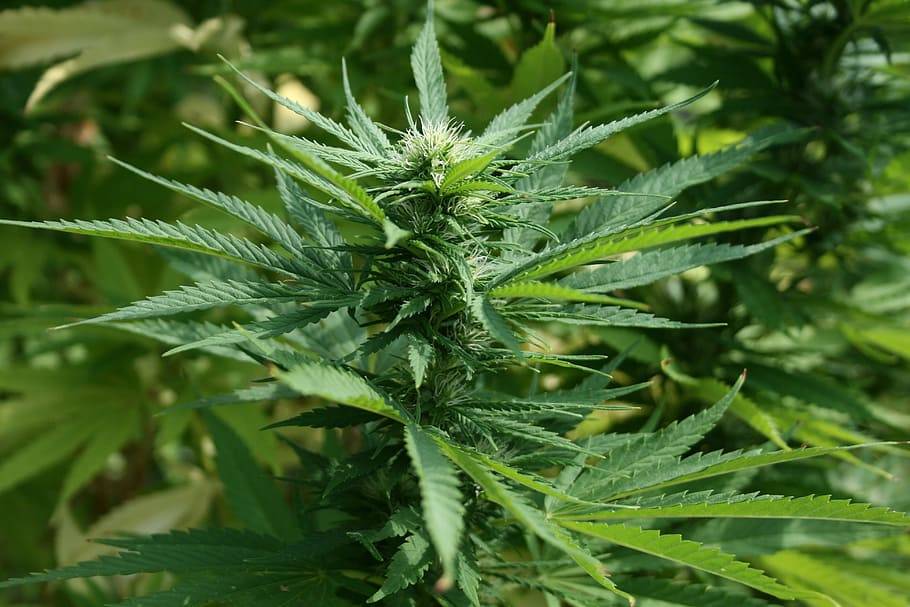



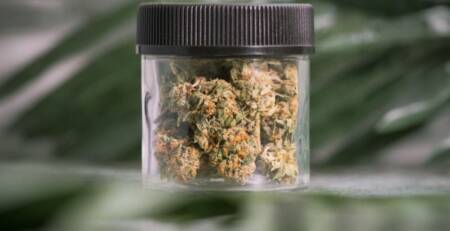
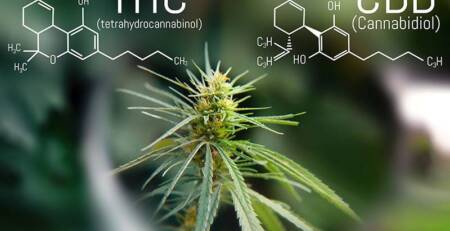

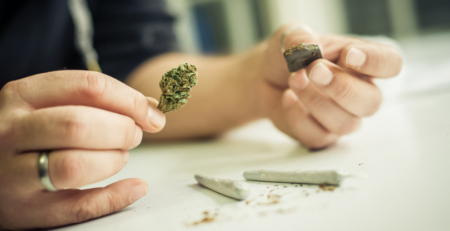
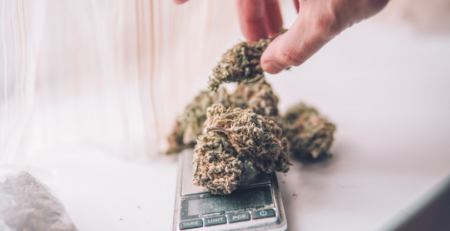
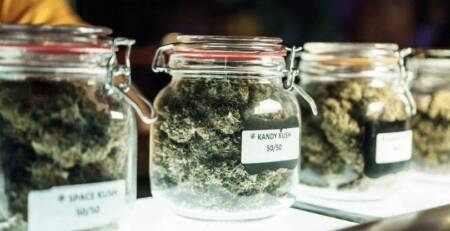
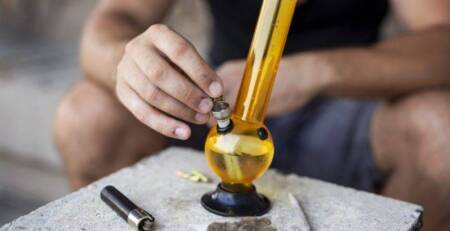
Comments (17)
Very informative, and explains a lot! Thank you!
Wow! This is extremely interesting. I’ve noticed some trouble sleeping after not smoking for a while
I’ve quit once before and found keeping active and diet really helped the transition
Withdrawals from weed,…. I’m laughing at some of the comments. I wouldn’t ever know really. I just got my first order with Sped Greens. I ordered a couple of strands and since I start smoking at 4, 5, 6 Am every day (have never missed even one day in the past 45 years…. never! :) The Maui I bought 2 days ago arrived over an hour ago and I’m still day dreaming here LOL! So question of the day,…. Do I get withdrawals? Well if I miss a few hours because of some stupid function I have to go to well you know. Sometimes you get some misrepresented online shitty smoke …….it happens online a lot you know, but fortunately this is not one of those times and being a first time customer I was really really surprised that I didn’t for once have to try 10 brands to hit a winner;) As soon as it got here I twisted up a reasonable 1/3 gram joint WOWeeeeI! ( unbelievable…. 2 days Canada Post :) So now that I got all frigged up on that roofer I’ve got the Maui Wowi syndrome. Hope it doesn’t run out. The good ones always do when people like me tell people like you whats good or whats not so good, and then the rush is on to load up for bear on this one. Oh well anyways back to the article….LOL! Am I addicted… absolutely Ha! Ha! Who cares. It gets me through my days. I work hard for my money, I am 63 years old and if I wanna get high as a permanent state of mind whose else’s business is it….hmmmmm? Do I suffer withdrawal to some degree…. yes like I mentioned. But if by chance I did run out totally….. I would be out for bear.
I quit once when I was trying to get the wife pregnant.The night sweats were the worst. We are done trying and I’m done quitting.
I find it’s mostly habits you do while smoking can be hard to do those activities with same enjoyment without
The only withdrawl symptom I’ve had was trouble falling asleep. but nothing like opiate withdrawl!
headache fatigue thats interesting that you actually get tired
well my quality of life is higher with mj, I notice all the aches and pains, cant eat as well without it
Not the best article… a bit all over the place. Mental withdrawals section sounds like it’s just talking about smoking in general
I dont know about withdrawls but def bad mood if ii run out
I have given my life to cannabis and cannabis has given life to me.
There will be no withdrawal….only happiness 😊
If there are withdrawals from marijuana I have never experienced them, I believe you can get moody and have cravings, but I don’t think withdrawal the terms I have known that to be.
another good read. I always suspected that there was some kind of withdrawal syndrome that we would go thru if one ever decided to stop. My recommendation would be to do it gradually by decreasing your daily intake for a more “anxiety-free” eventual cessation.
Wow,excellent article. Personally I have never experienced severe withdrawal symptoms. For me it is like quitting caffeine; some irritability and poor sleep for a few days. While there are some undoubtedly physical aspects to withdrawal it is the psychological part that is more telling for myself.
Iv attempted to quit many times and always seem to do it with not many issues until i mixed it with tobacco. I do not recommend this i say if it aint green its aint for me. Iv been able to stop smoking my holy herbs with tobacco and now smoke it staight.
CANNABIS can be addictive depending on the person. Ive withdraw once before and was sick for a whole week.
Really good information. Its good to talk about because lots of people dont think its a thing.
Comments are closed.